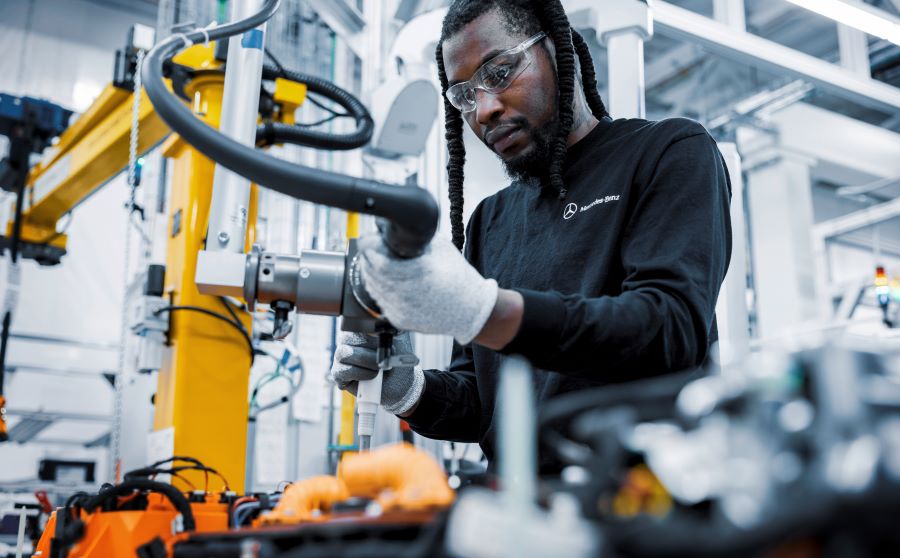TUSCALOOSA, AL—Mercedes-Benz is testing a new digital production system at its assembly plant here. If successful, the automaker plans to implement the system at its factories worldwide.
The production system, MO360, uses Internet of Things (IoT) technology, along with artificial intelligence, to provide a thorough, up-to-the-minute data picture of what is going on in vehicle production.
“It’s all about data,” says Jörg Burzer, member of the board of management of Mercedes-Benz AG responsible for production and supply chain management. “We can already see high efficiency gains on the assembly lines.”
MO360, which is already partially in use at more than 30 plants around the world, is described as a digital ecosystem using hardware and software. The new Factory 56 in Sindelfingen, Germany, which will open in September, is employing the full system. The idea is to use a platform that will track the production of individual vehicles on the line, providing real-time numbers, with the simplicity of a smart phone app.
It does this using a single control software language, “Integra,” that applies to everything sensors up to production control.
“All teams systematically utilize continuous feedback from production to optimize and enhance the digital tools,” says Jan Brecht, chief information officer for parent company Daimler and Mercedes-Benz. “All teams systematically utilize continuous feedback from production to optimize and enhance the digital tools.”
For example, the system keeps an eye on production and control issues. If a problem develops on the production line, the system’s artificial intelligence can look at the problem, comparing it with comparable information from other plants, and propose a solution to workers on the line.
“AI is not magical,” says Michael Goebel, president and CEO of the Tuscaloosa plant. “AI is basically the recognition of patterns in a large amount of data. We gather data from all quality-related incidents, and AI can find similar patterns in the past and deduct the proper step to alleviate that problem. It’s not just drawn from the individual experience of one person. The algorithm can draw on experience from all plants.”
Other aspects of MO360 include repairing or replacing equipment and improving logistics between plants. One other facet of the program is the paperless factory, where information, including quality inspections, is given in digital form. The company estimates that this will save 10 tons of paper a year at the Sindelfingen factory alone.
Goebel said parts of the system, such as digital shop floor management, have already been implemented in the Tuscaloosa plant.
The system can also be eventually integrated into auto suppliers. Mercedes-Benz believes the system will increase production efficiency by more than 15 percent by 2022.
“We are ensuring the complete digital support of each member of the production staff,” Burzer says.






